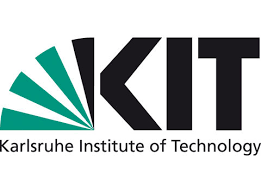Karlsruhe Institute of Technology: Designing technology for the benefit of the user
Digital technologies shape our everyday lives. When designing the technology, pure functionality is the focus. In view of climate change or social issues, however, the demands of users are changing: a technical system that does not meet ecological or moral requirements is a bad product for many. When developing technology, manufacturers must therefore go beyond the functional logic. Researchers at the Karlsruhe Institute of Technology (KIT) want to show ways for a considered technology development and design.
“We are developing tools and methods to better understand the digital revolution on the one hand and to shape it more in the interests of users and society on the other,” says Dr. Bruno Gransche from the KIT Institute for Technology Futures. “One problem for well thought-out and conscious technology design is that developers often cannot predict how people will actually use a technology,” says the philosopher. This so-called multi-stability of technology leads to conversions and misappropriations, but also to innovations.
Unanticipated Use of Products
Gransche cites the use of autonomous vehicles as an example: The developers intended that it would be possible to work, read the newspaper, watch videos or sleep while driving from A to B. Shooting sex films while driving on autopilot, for example – as happened in a video clip that attracted attention on social media a few years ago – is not. Elon Musk, founder and CEO of the American car manufacturer Tesla, commented on Twitter at the time: “It turns out that there are more ways to use the autopilot than we imagined – it would have come should see.” “Autonomous cars therefore have complex effects on road traffic, which not even central technology drivers understand.
Better foresee possible reuse of technology
“Anyone who designs technology is not responsible for the relationship users actually have with it, but for the possible uses and potentials,” says the expert. Developers would therefore have to make certain decisions in advance, which not only determine usage, but also influence the resulting far-reaching potential for action. Anyone who can take this complexity into account more consciously and earlier can develop more responsible innovation strategies, take the complex demands of users into account in a more targeted manner and ultimately help shape forward-looking social change. “We want to offer them a basis that is as well-founded and concretely manageable as possible,” says Gransche. “To better understand phenomena such as multistability,
The project “Life Forms in Digitized Living Environments”, LeDiLe for short, is part of the Integrated Research Cluster funded by the Federal Ministry of Education and Research with 2.75 million euros. The KIT receives 550,000 thousand euros.

